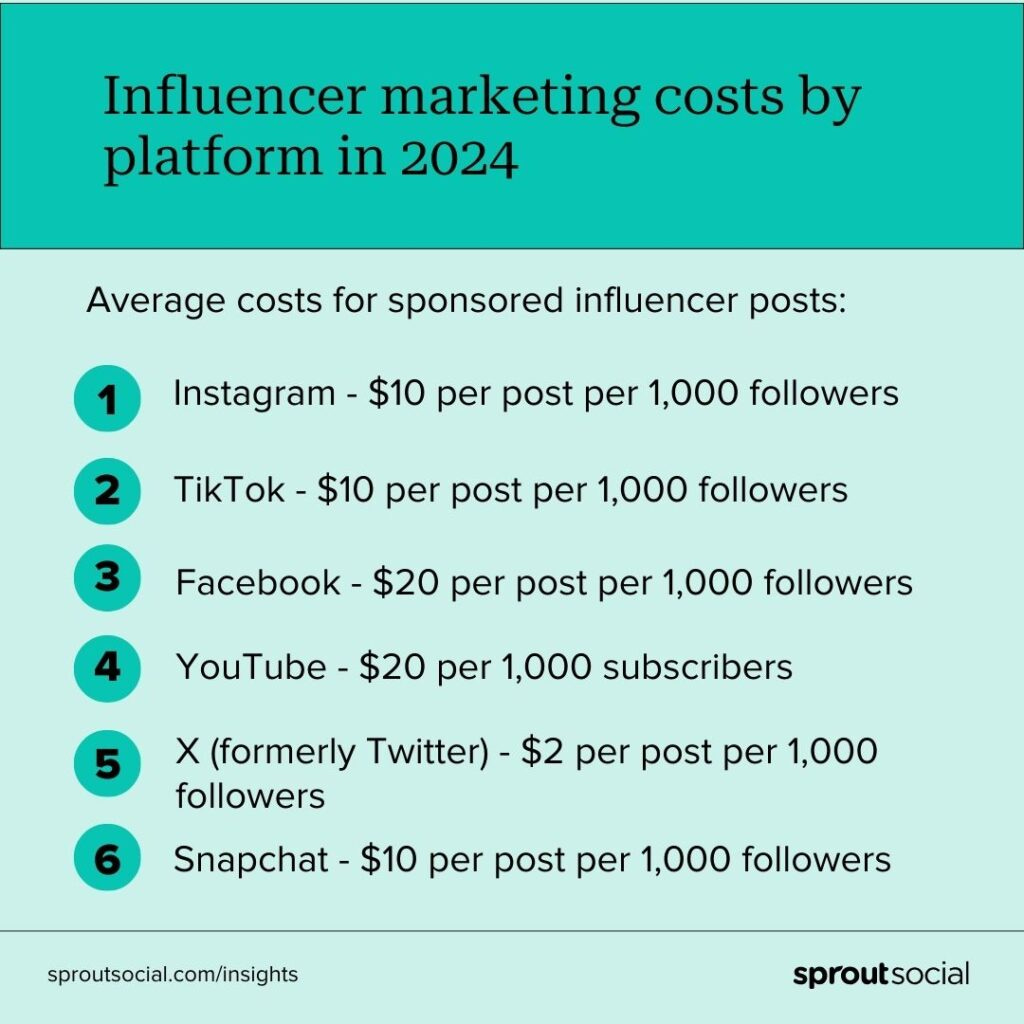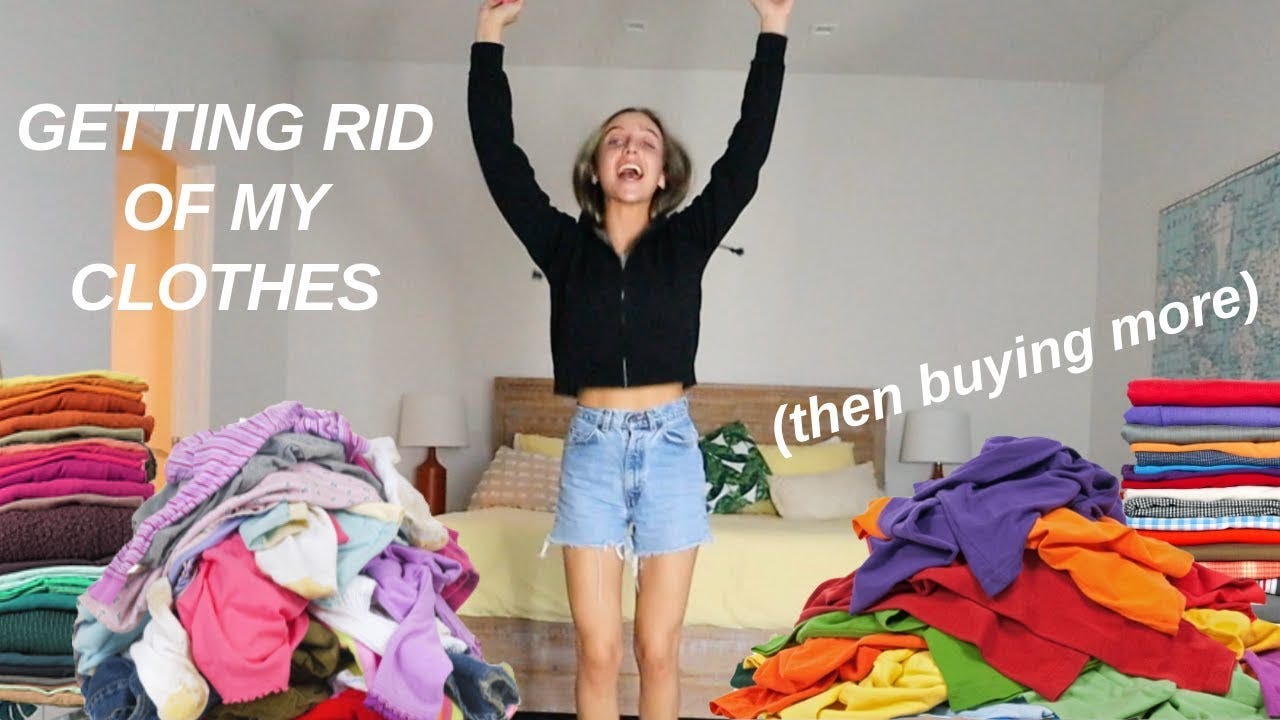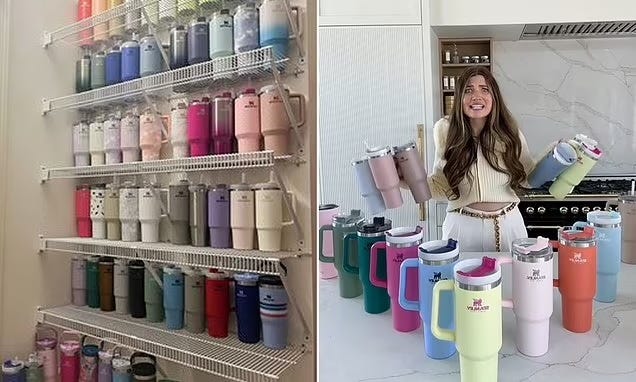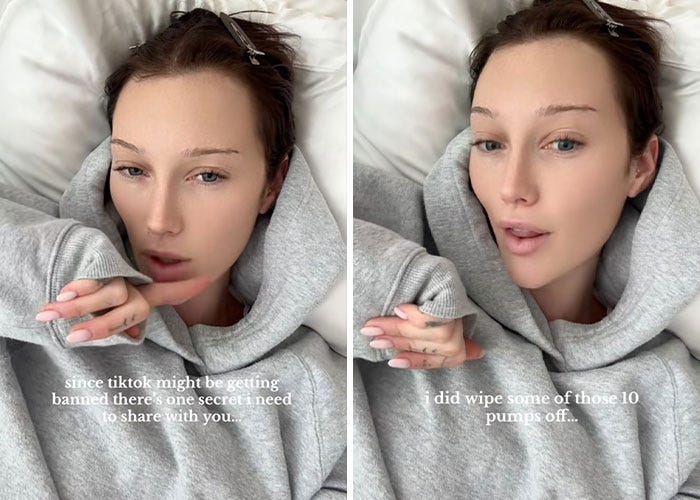Gilding is the process of covering a cheaper material, like wood or metal, in gold leaf. Artisans paint gilded frames, furniture, ceramics, and other objects to add shine and an aura of wealth to an otherwise ordinary object. Thus, the metaphor describing a historical period was born.
Mark Twain’s 1873 novel, The Gilded Age: A Tale of Today, satirizes the politics of the late 1870s to the early 20th century through the story of a rural family’s efforts to get rich. “Gilded” became a metaphor for the wealthy concealing a dark, exploitative society.
Many will rightfully compare the economic conditions and political corruption of The Gilded Age to today’s economic and political system. In 1913, the richest 0.01% of US families held 9% of the nation’s total wealth. By the late 1970s, they held 2% of US wealth, and today, they climbed right back up to 10%. In tune with “gilded” symbolism, you might imagine an influencer - a glamorous salesperson using all their charisma and clout to sell you piles and piles of products that will eventually tarnish, fall out of fashion, or break.
Funnily enough, you can find DIY gilding tutorials for your phone case.
As TikTok (seemingly) reached its curtain call, the gold leaf paint around the influencer world began to crack. TikTok’s “final” days were filled with tears, admissions of manipulation and dishonesty, and an overall sense of chaos. For example, the workout influencer didn’t really do all those workouts, or the mukbang influencer didn’t really eat all that food, or the makeup influencer didn’t really wear all that makeup… I could go on.
The drama was unsurprisingly met with a sense of “you finally got yours” from people who post, but don’t monetize, which felt gendered, if we’re real (most influencers who monetize their content are women). “Haha, cry little girl! Now it’s time to get a REAL job just like the rest of us!”
Does this mean I have sympathy for influencers? NO. However, we should have an honest discussion about labor and the internet without resorting to our primal hatred of beautiful women.
Look, if my source of income was disappearing because of something completely out of my control, and I couldn’t recreate it anywhere else, I’d freak out too. TikTok has no severance package. TikTok has no benefits. When you’re an influencer, you are not employed by the app. You’re receiving a (proportionally) very small percentage of the revenue you generate for major corporations and the app itself. Most people are not financially literate, especially young people. If you started this when you were freshly 18, chances are you have no idea what to do now. Hence the freakout.
Now, I do believe in a little personal responsibility, but it sucks to lose your job, and influencing is a job. The word “influencer” sounds dystopian but it accurately describes their work: they influence the marketplace (and culture, and the election, but ah well, forget it. That’s a topic for another time).

From the perspective of a consumer goods giant (let’s say, a huge makeup brand), it is significantly cheaper to send an 18-year-old girl on the internet a few of your new mascaras to try than to create a mascara commercial. It’s still cheaper to pay a 25-year-old woman $5,000 to create a sponsored post. If you are a particularly social-savvy company like e.l.f., you can balloon your revenue without having to shell out health insurance to a whole new staff. Your return on investment might even be higher than a primetime TV slot, since you are being way more targeted in your approach and people love their favorite influencer.
All the while, TikTok is the very infrastructure facilitating this capital success. Losing TikTok is like a king deciding to shut down the farms and land he owns, screwing over the nobles, peasants, and serfs underneath him. Of course everyone would be upset!
Influencers are what Australian media scholar Axel Bruns would call “produsers” - a portmanteau of producer and user. They both produce and consume information, blurring the lines between who is working and who is consuming. Slavoj Zizek recently discussed the Costco Guys as an example of produsage - effectively rendering them digital serfs, creating content for a company they are not employed by on a digital platform they do not own.
The New Gilded Age, or New Feudalism?
In The Gilded Age, US workers might have received a pitiful wage for the products they created (railroads, oil, steel, etc.). Today it’s likely these same workers have retail or “management” jobs, but the system is more or less the same: you do your job, the company extracts value from it, and you receive a wage in exchange. The tech industry, however, runs on a completely different system: you continue to produce and use (prod-use) the product for nothing in return, except for the ability to continue prod-using.
OpenAI CEO Sam Altman recently claimed AI would require “changes to the social contract” (he actually said something similar in 2017 - the interviewer unfortunately did not press him further).

Altman would not be surprised then, when he finds out economist and former Minister of Finance in Greece, Yanis Varoufakis, has already coined the term “technofeudalism.” Large tech companies, such as Amazon and Google, own much of the infrastructure we use to live, work, and communicate. While influencers are certainly a technofeudal phenomenon, this extends to the gig economy (rideshare or delivery apps) and even companies who run their entire business through Amazon Web Services (AWS). I’m writing this blog on Google Docs before I post to Substack.
As Varoufakis explained in an interview:
“Take the Apple Store. You are producing an app, Apple can withhold 30 percent of your profits [through a commission fee]. That's a rent. That's like a ground rent. It's a bit like the Apple Store is a fiefdom. It's a cloud fiefdom, and Apple extracts a rent exactly as in feudalism. So my argument is not that we went back from capitalism to feudalism. My argument is that we have progressed forward to a new system, which has many of the characteristics of feudalism, but it is one step ahead of capitalism. To signal that, I added the word techno.”
If influencers did receive some kind of employment (or even be considered independent contractors) from these social platforms like TikTok or YouTube, it would automatically ruin the trust they built with their audience. If Uber started to legitimately employ drivers, they would never turn a profit (which is why they extensively lobby against anything like it). This entire ecosystem is predicated on not employing people, on requiring everything to be run through a consolidated infrastructure, and then making it so normal that expressing a bit of empathy towards the millions of people who might lose their livelihood at the flip of a coin seems absurd.
Influencers are no working class heroes (I mean, these people are making millions), but it’s important to remember how and why they can even exist in the first place. Is influencing a noble, honest job? No, but I’m not particularly interested in that. I’m not a moralist - people do what they need and want to do to make money.
What I am interested in, is how the gold leaf paint continues to crack. We might be genuinely living through another period of exaggerated socioeconomic inequality, but it looks very different than how it did in 1913. Perhaps a piece of gilded furniture is no longer the correct metaphor, but it’s the cheap stuff you order on Amazon.
Anyways, if I’m prod-using, and you’re prod-using, then who’s flickering the lights?










nosferatu mentioned ‼️
what a strange time to live in where everything is simultaneously so much more easily available AND so much less transparent all at once!